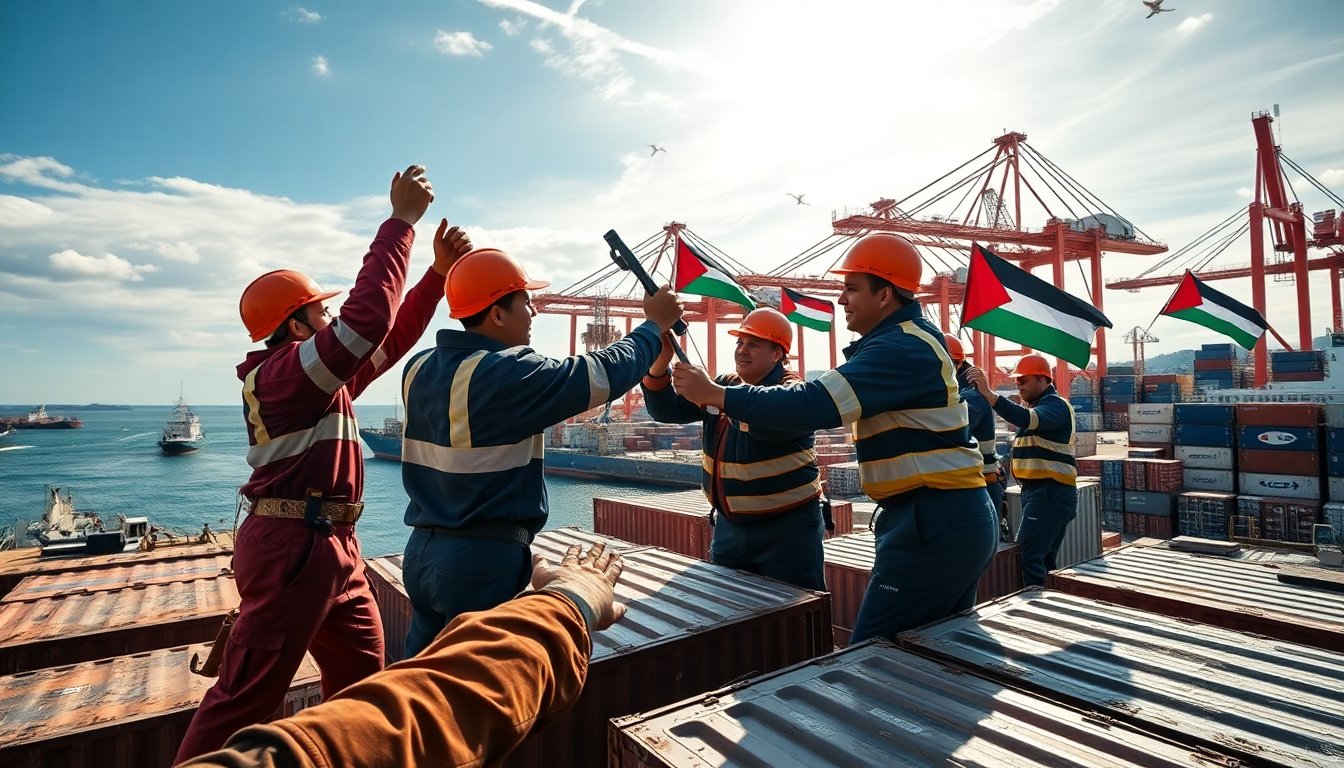Table of Contents
The situation surrounding the Global Sumud Flotilla, an international aid convoy set to sail towards Gaza, has created considerable tension among dockworkers in Europe. In particular, dockworkers in the port of Genoa are leading a movement that could escalate into a full trade blockade against Israel. This initiative aims to contest the ongoing blockade, which has severely affected the lives of Gazans.
Recently, dockworkers in Genoa have sparked widespread pro-Palestinian demonstrations throughout Italy. Their call to action seeks to halt shipments bound for Israel, strategically leveraging their influence to exert pressure on the Israeli government. The flotilla, comprising approximately 50 vessels, includes activists and representatives from various European ports, highlighting a united effort to address the humanitarian crisis in Gaza.
Dockworkers unite for a common cause
Over the weekend, dockworkers from multiple European nations gathered to discuss the potential blockage of arms shipments to Israel. While the specific outcomes of these discussions remain undisclosed, the determination among these workers is evident. They view the flotilla as a tripwire; should there be any aggression towards the aid convoy, they are ready to retaliate by obstructing all shipments linked to Israel.
Historical context and solidarity
Riccardo Rudino, a veteran dockworker and member of the CALP collective, underscored the urgency of their mission. He asserted that an attack on the flotilla would trigger a widespread general strike, and if the Israeli government continues its current actions in Gaza, a complete trade blockade will be implemented. Rudino stated, “There is no other path forward.” His powerful speeches have gained traction, galvanizing support among dockworkers across Europe to prevent any materials from departing their ports for Israel.
This movement draws from a long history of dockworkers engaging in similar actions during significant global conflicts, including the Vietnam War. Rudino noted historical parallels, referencing the successful international pressure that ultimately secured the release of Nelson Mandela and contributed to the end of apartheid in South Africa. He remarked, “It seemed impossible at the time, but through persistent efforts, we achieved change.”
The power of collective action
Many dockworkers feel a strong moral obligation to take a stand, believing their actions align with what they consider the right side of history. “We lack military might—our only weapon is the ability to block shipments and disrupt trade,” Rudino emphasized. He highlighted that obstructing logistics serves as a powerful tool for the people, particularly when addressing humanitarian crises.
Political implications in Italy
The Italian government, led by Prime Minister Giorgia Meloni, faces increasing pressure to adopt a more assertive stance regarding Israel and acknowledge Palestinian statehood. This issue has become a significant topic in the ongoing regional elections, with implications for Meloni’s political future as the elections progress through November.
In a show of solidarity, Italy’s largest union, CGIL, has pledged to initiate a general strike should the flotilla encounter any aggression. This commitment reflects the deep-rooted sentiments among unions and labor groups who aim to support humanitarian efforts in Gaza. The Italian parliament is also under scrutiny, with a vote scheduled that could determine whether two ministers and a cabinet secretary will face prosecution related to their handling of this sensitive situation.
As the dockworkers continue to mobilize and organize, the stakes remain high. Their actions, grounded in solidarity and historical precedent, could disrupt critical trade routes and draw attention to the ongoing humanitarian crisis in Gaza. The message is clear: any aggression towards the flotilla will lead to a significant escalation of trade blockades, reinforcing the dockworkers’ commitment to their cause.


